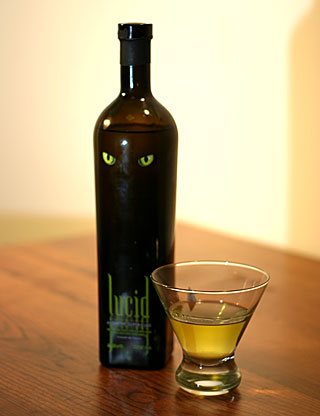


The primary herb that contributes to the characteristic “buzz” of absinthe. The “Holy Trinity” of herbs is what distinguishes absinthe from all other herbal based liquors. In addition to the Holy Trinity, we can also add additional Herbs, Spices and other Botanicals, which can be grouped in two main categories. These three herbs are also collectively known as the “Holy Trinity” of absinthe herbs. What is in proper Absinthe?Ībsinthe is a complex herbal liquor, made in much the same way as Gin (without using Juniper) and which almost always contains three categories of herbs. The ban lasted for almost a hundred years until the truth about absinthe eventually overpowered the myths about, superstitions about and unfavorable bias towards Absinthe.Īfter almost a 100 years, Absinthe has been unbanned across the world and still is only banned in Switzerland, it’s country of birth. This spread through Europe and by 1915 most countries had Absinthe banned – based on no scientific evidence at all! In Switzerland a national referendum was held and 1908 Absinthe was banned in Switzerland. Ultra conservatives and prohibitionists, started to strongly campaign against spirits and on Absinthe in particular. Part of the popularity of Absinthe can definitely be ascribed to the drinking ritual when enjoying Absinthe, dripping ice-cold water from a special Absinthe fountain, through a sugar cube suspended in a slotted spoon over a tulip shaped glass with Absinthe in.Īs the water droplets touche the crystal clear green absinthe, it slowly turns in a milky white with amazing louching effects displayed in the glass.įamous personalities that are known to have enjoyed Absinthe included Vincent van Gogh, Oscar Wilde, Ernest Hemmingway, Mark Twain and almost all artists in France up to 1915, the year of the … big crash! In 1910 the French were drinking 36 Million liters of absinthe annually, enjoyed by all social classes including the super wealthy and the poor. It became so popular that in the 1860’s five o’clock in the afternoon became known as “l’heure verte” or “the green hour” with reference to Absinte. In the 1840’s, even the French Army included Absinthe in the rations of their soldiers as a preventative measure to fight malaria! The ingredients seems to have been selected specifically for some psychedelic effects, but more on that later.Ībsinthe made it’s appearance in Switzerland during the 1790’s as a patent medicine designed by Dr Pierre Ordinaire and it rapidly spread through France and Europe, with France leading the absinthe phenomenon. I became extremely chatty and creative”Ībsinthe certainly has the potential to provide a totally different “buzz” than normal alcohol based drinks. ""My perception of shadows and light became very, very clear. Everything became very clear, visually,"" he recalls. It is the only spirits that is officially banned in a country’s constitution and even today, it is still illegal in Switzerland.Īdrian Matthews put the “buzz” of absinthe into perspective: ""As somebody who doesn't really drink much and certainly doesn't like to be drunk, I find that it has the mild euphoria that comes with a good bit of tipsy, but it had a quality that was very different. No matter on which side you were on, absinthe was highly controversial and remains even a little so today. Others enjoyed “the Green Fairy” as their favorite spirits and hailed it a “magic spirit” giving your creativity “wondrous wings”. It was described that “it makes you crazy and criminal”, “disorganizes and ruins families” and was “a menace to the future of the country” by some highly conservative critics. Where did Absinthe come from?Ībsinthe is a highly alcoholic drink with a most controversial history. a possible opportunity for some entrepreneurial distiller to revive and market this truly amazing drink.īut first a look at traditional absinthe. Absinthe (The green fairy spirits) has shown a remarkable revival the last 20 years after having been banned in most of Europe for almost a hundred years.Īlthough there were no legal definitions for Absinthe (except for Switzerland), until its inclusion into EU Liquor Legislation, there are very good guidelines on what makes a good, and what makes an inferior absinthe.Īlso, not a lot of consumers are aware that we are not limited to the standard Green Absinthe.


 0 kommentar(er)
0 kommentar(er)
